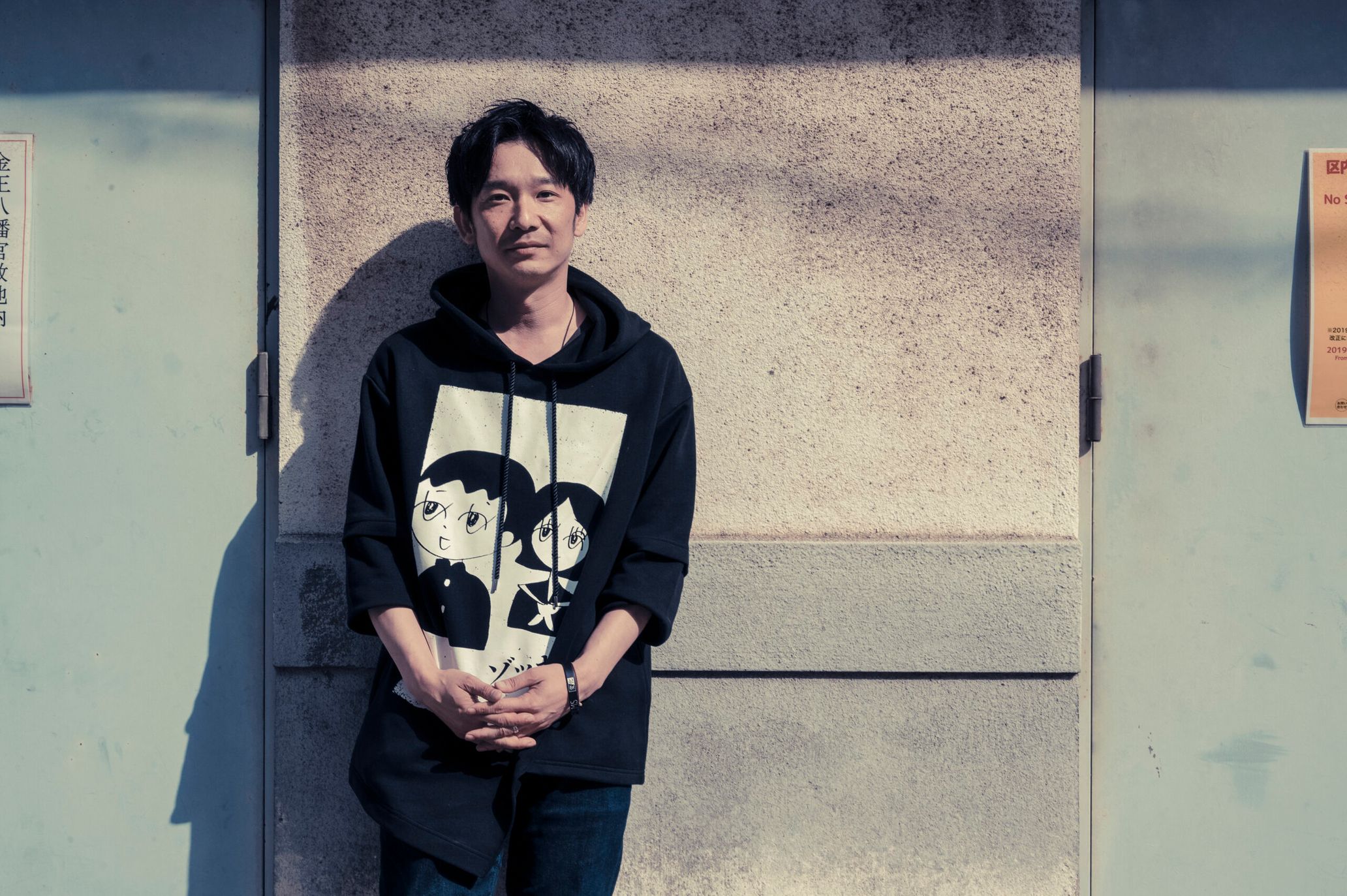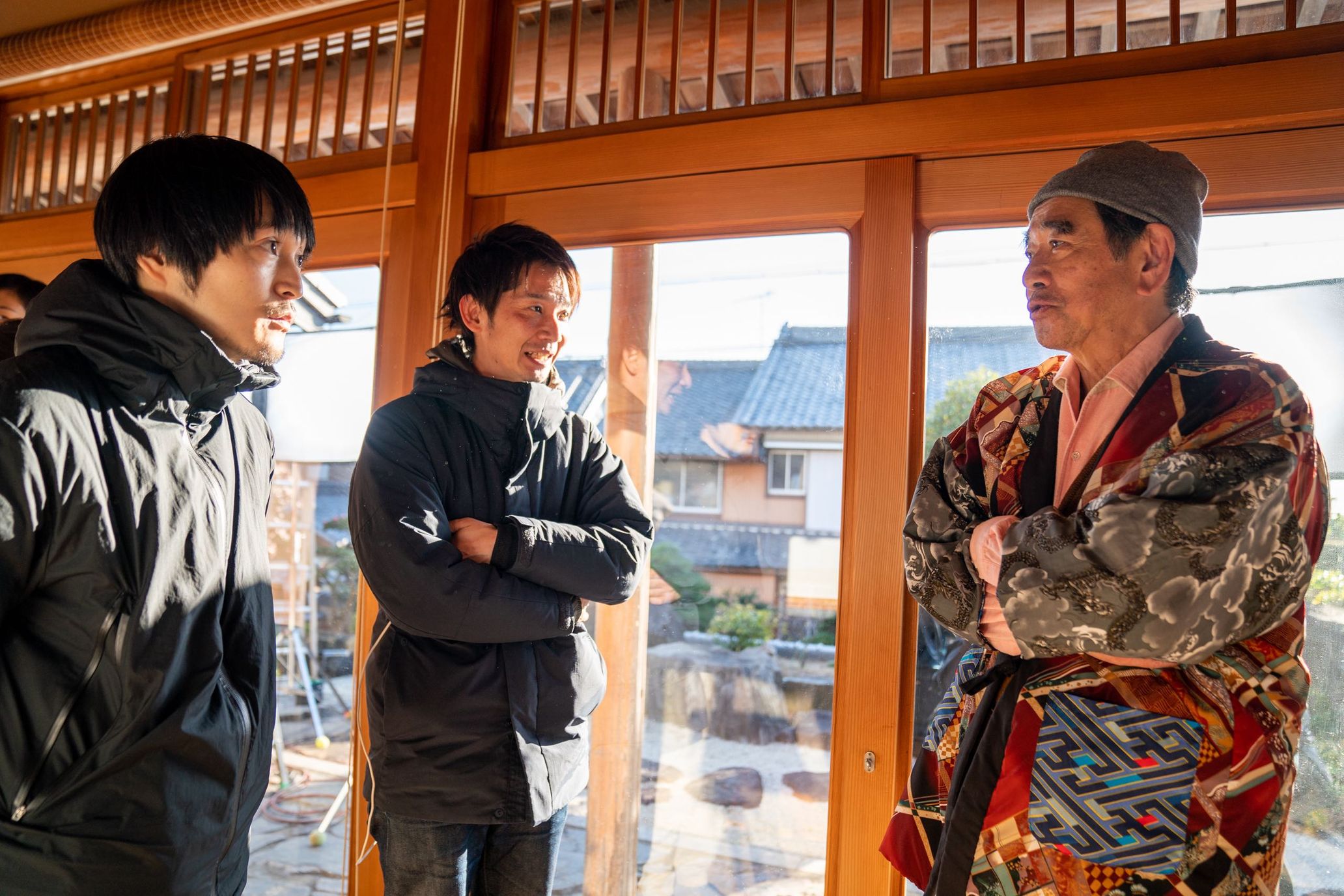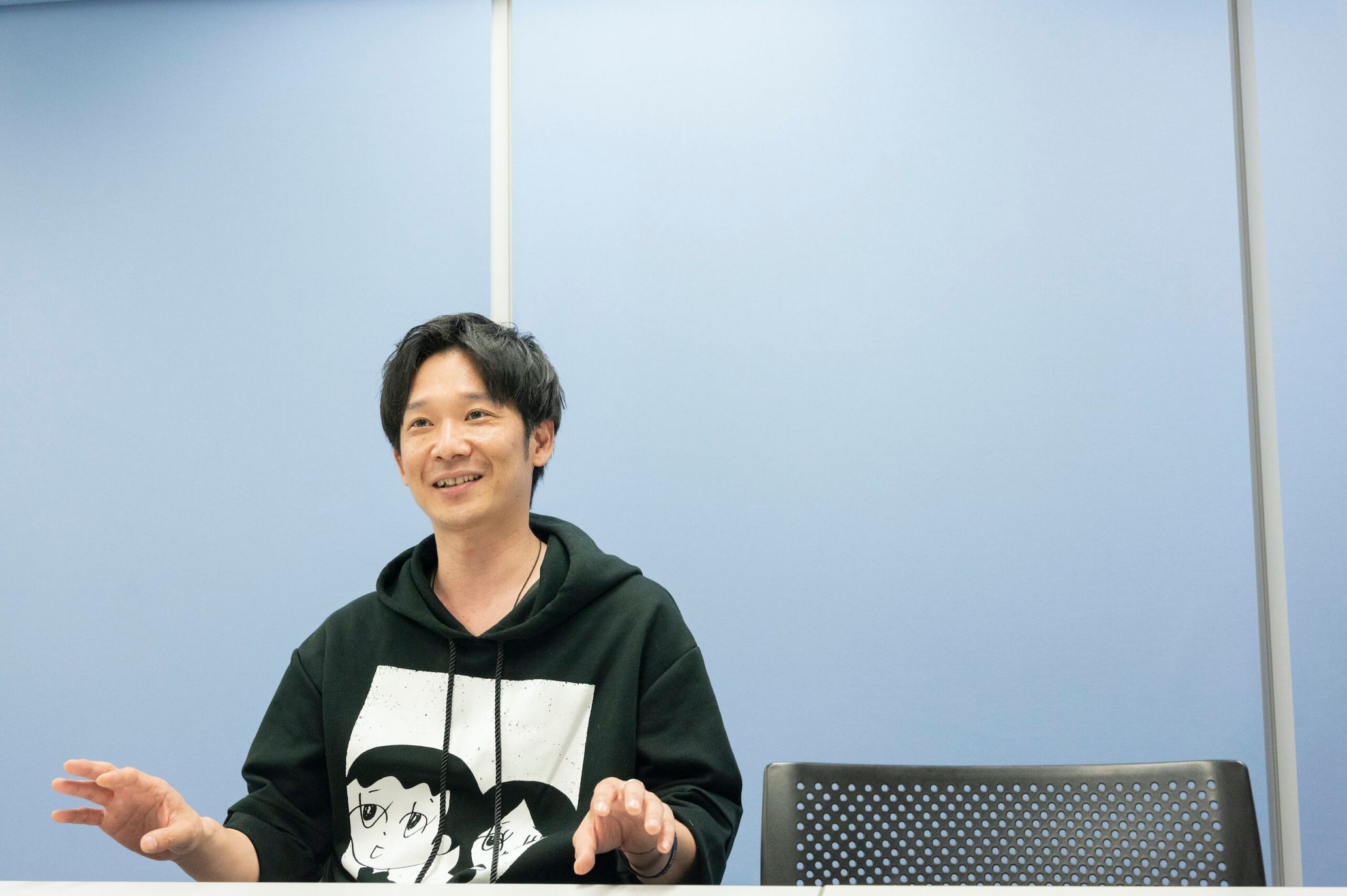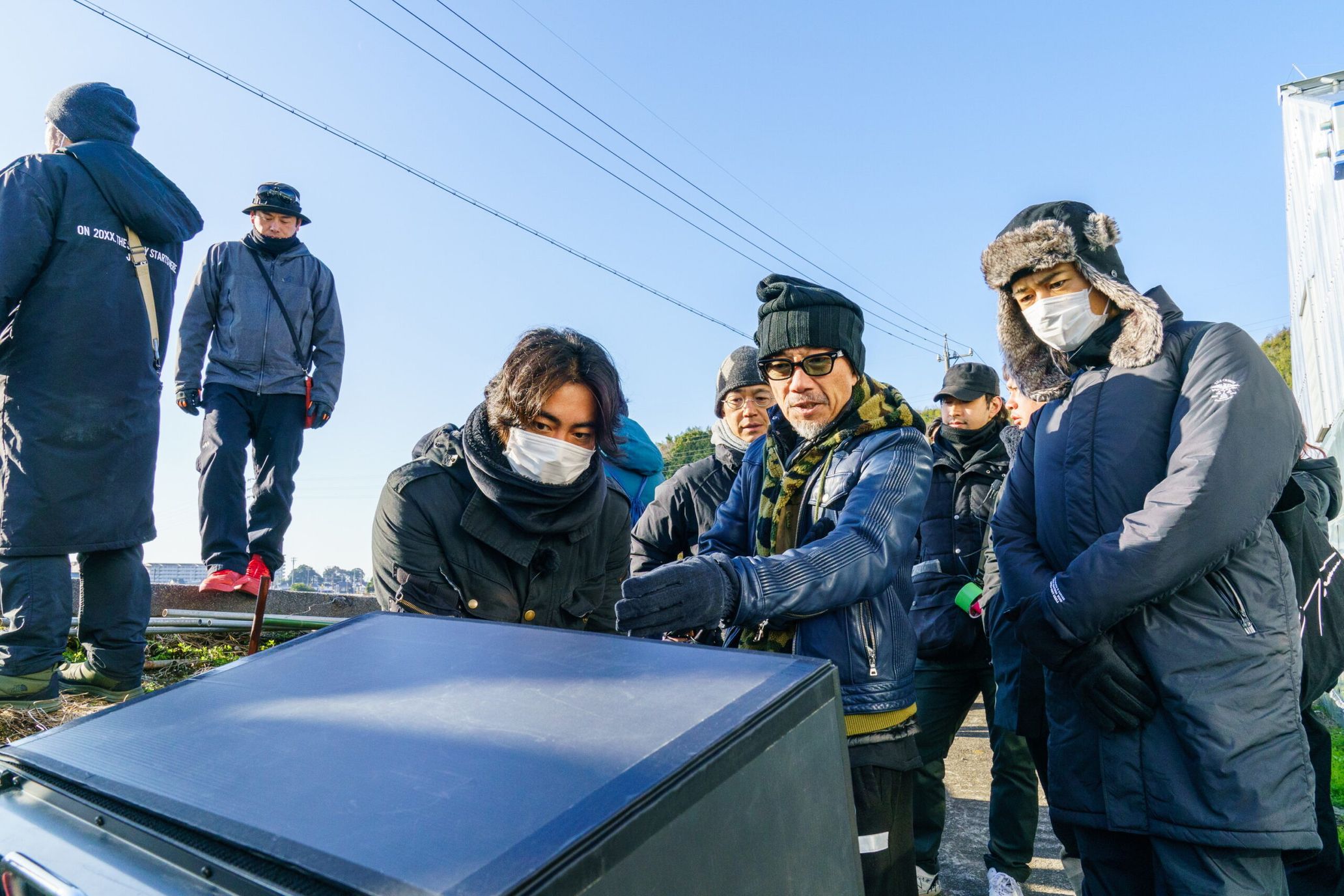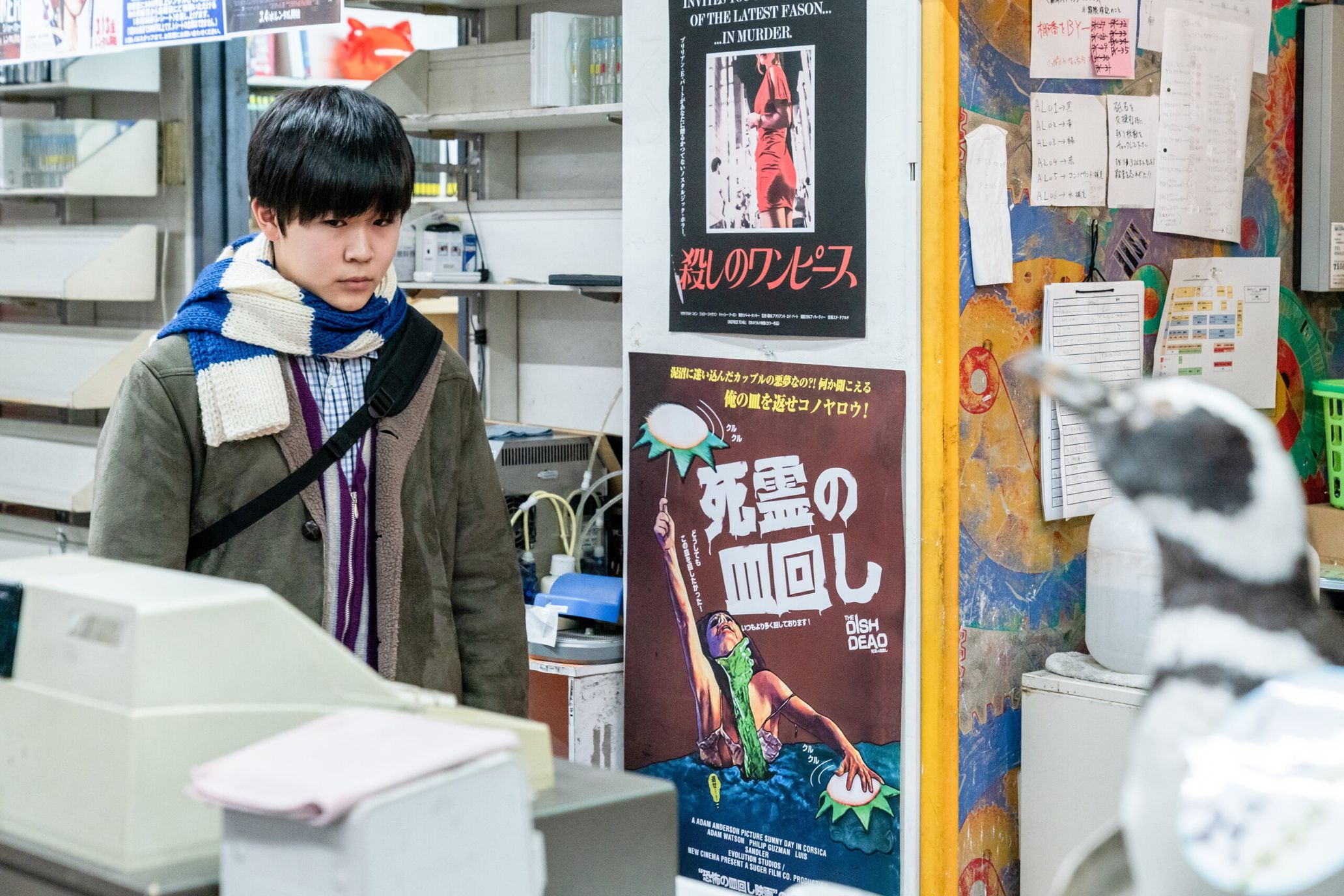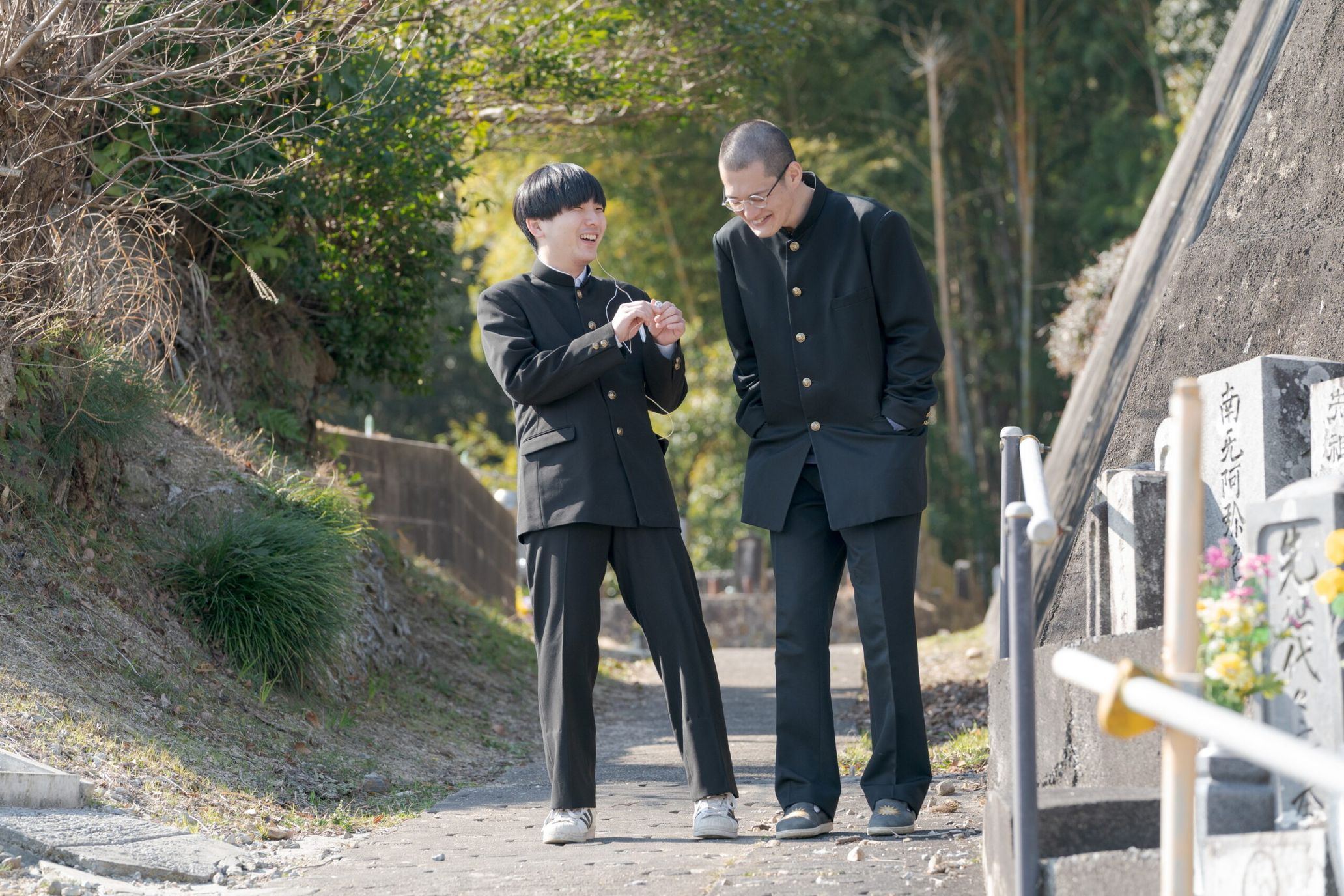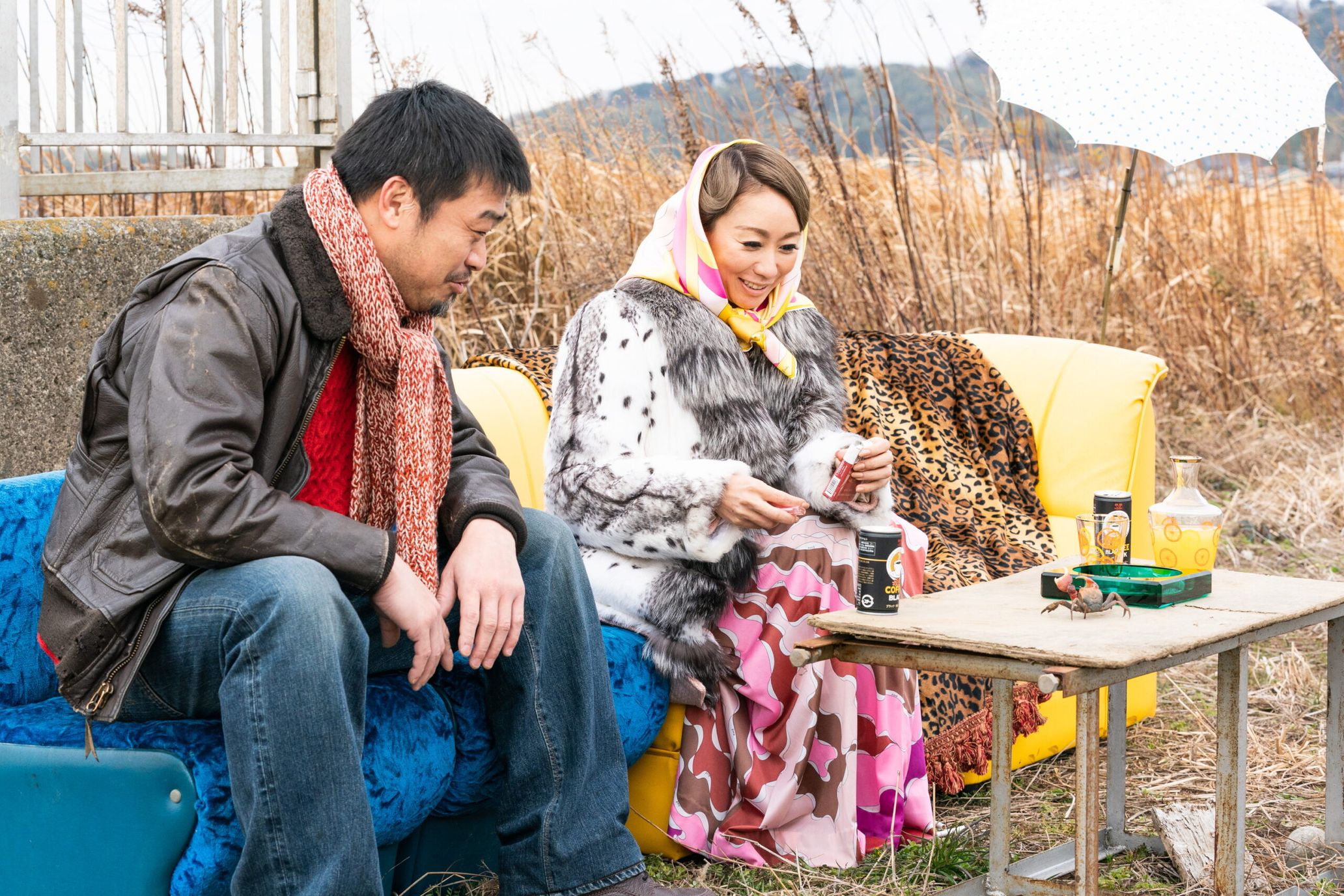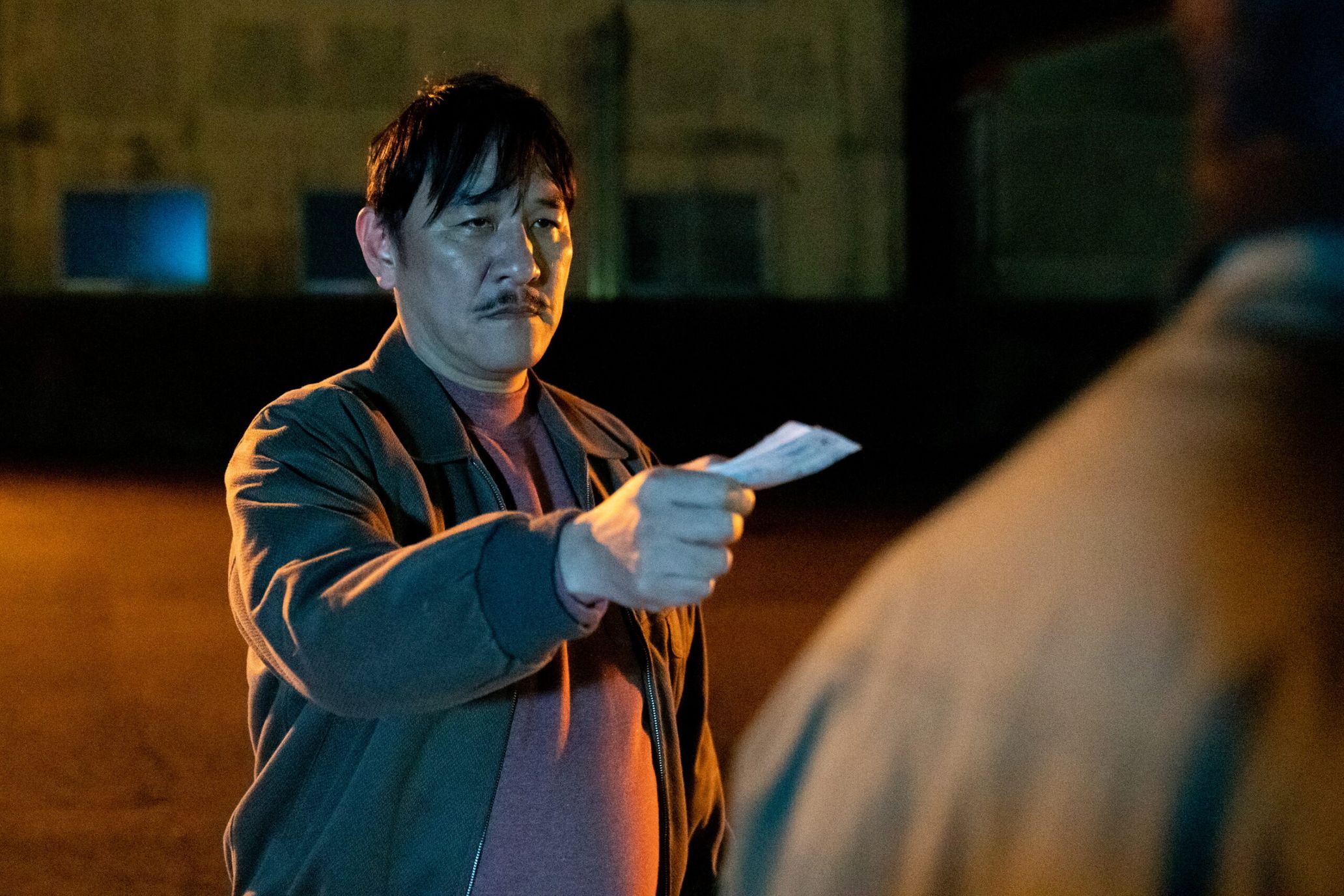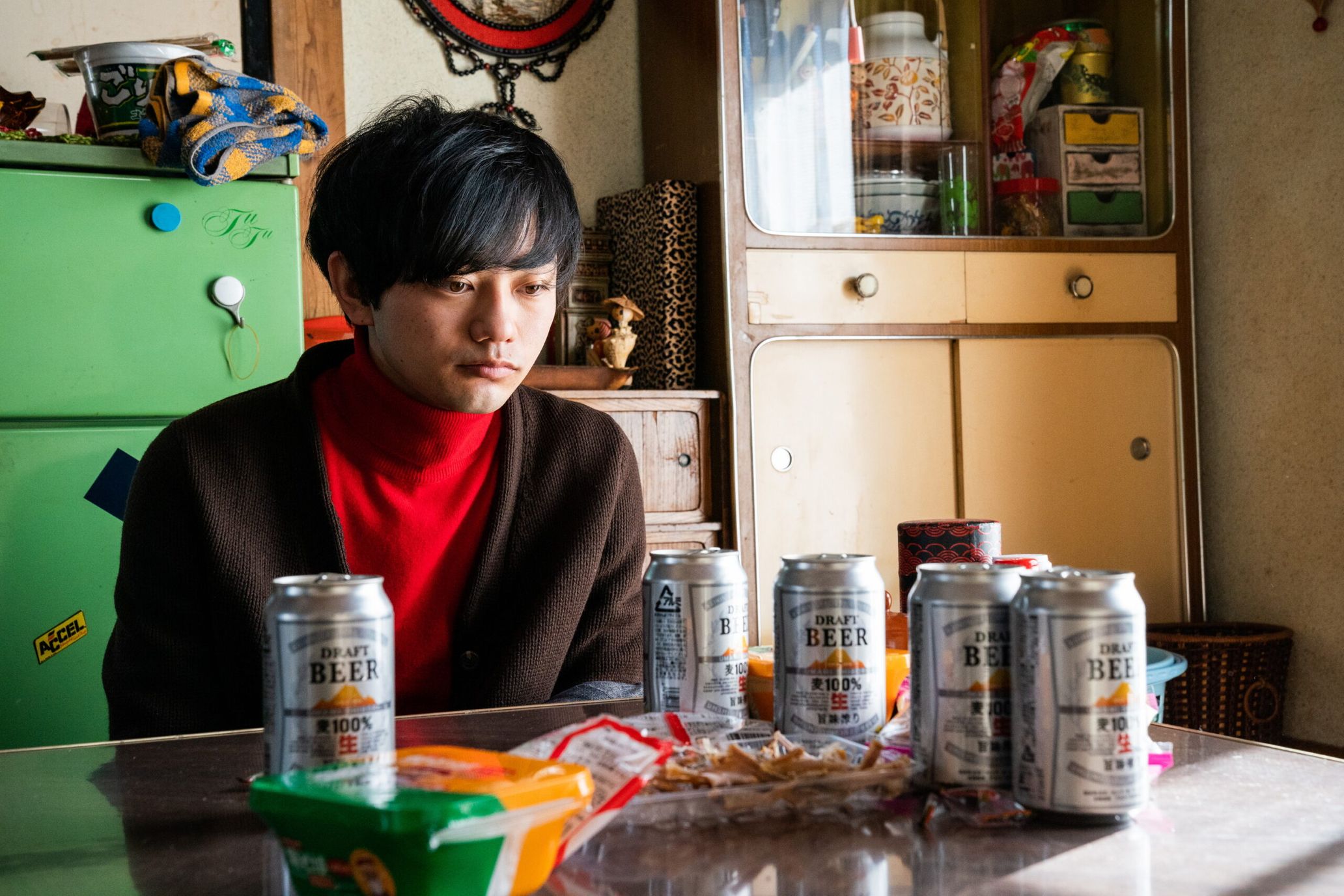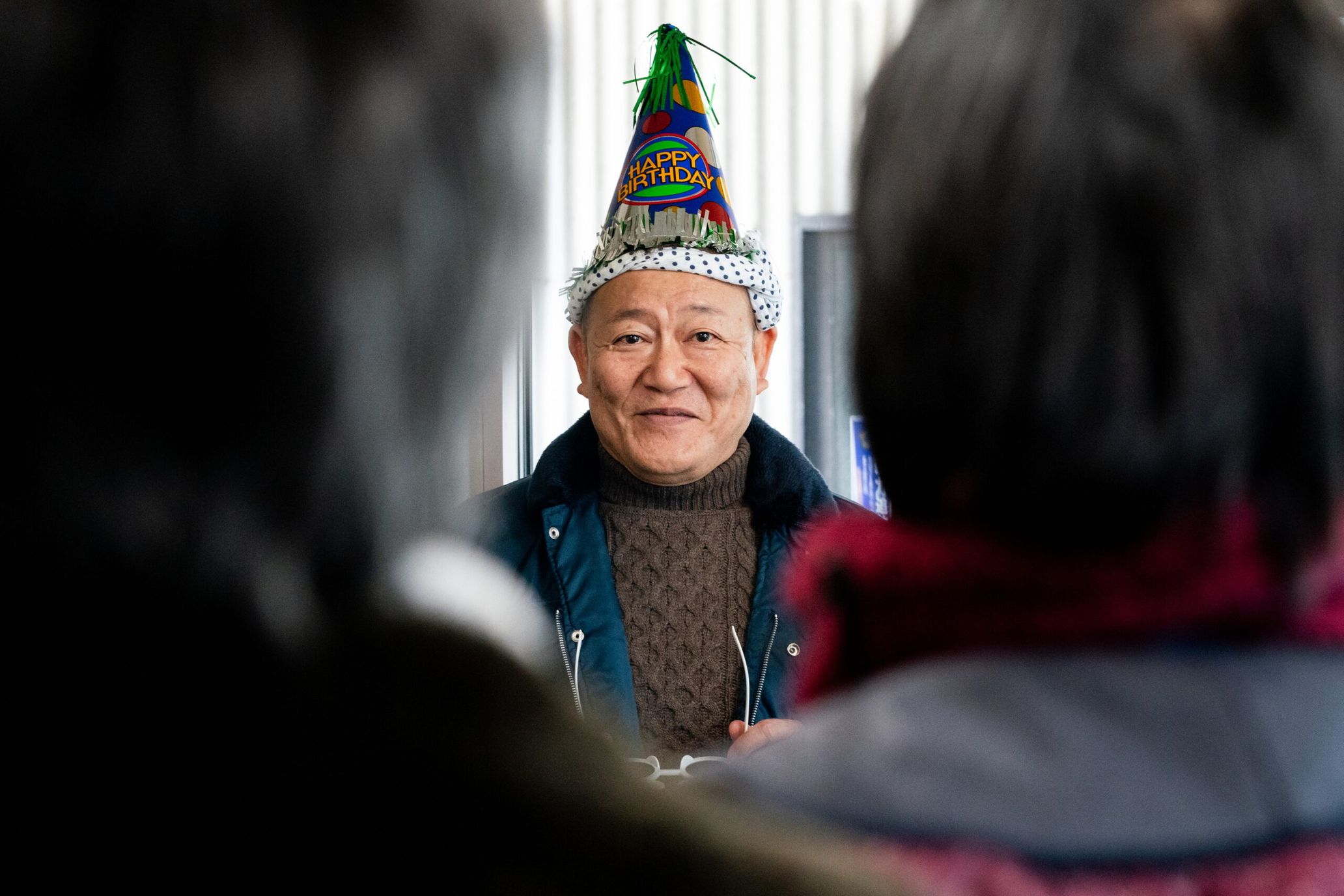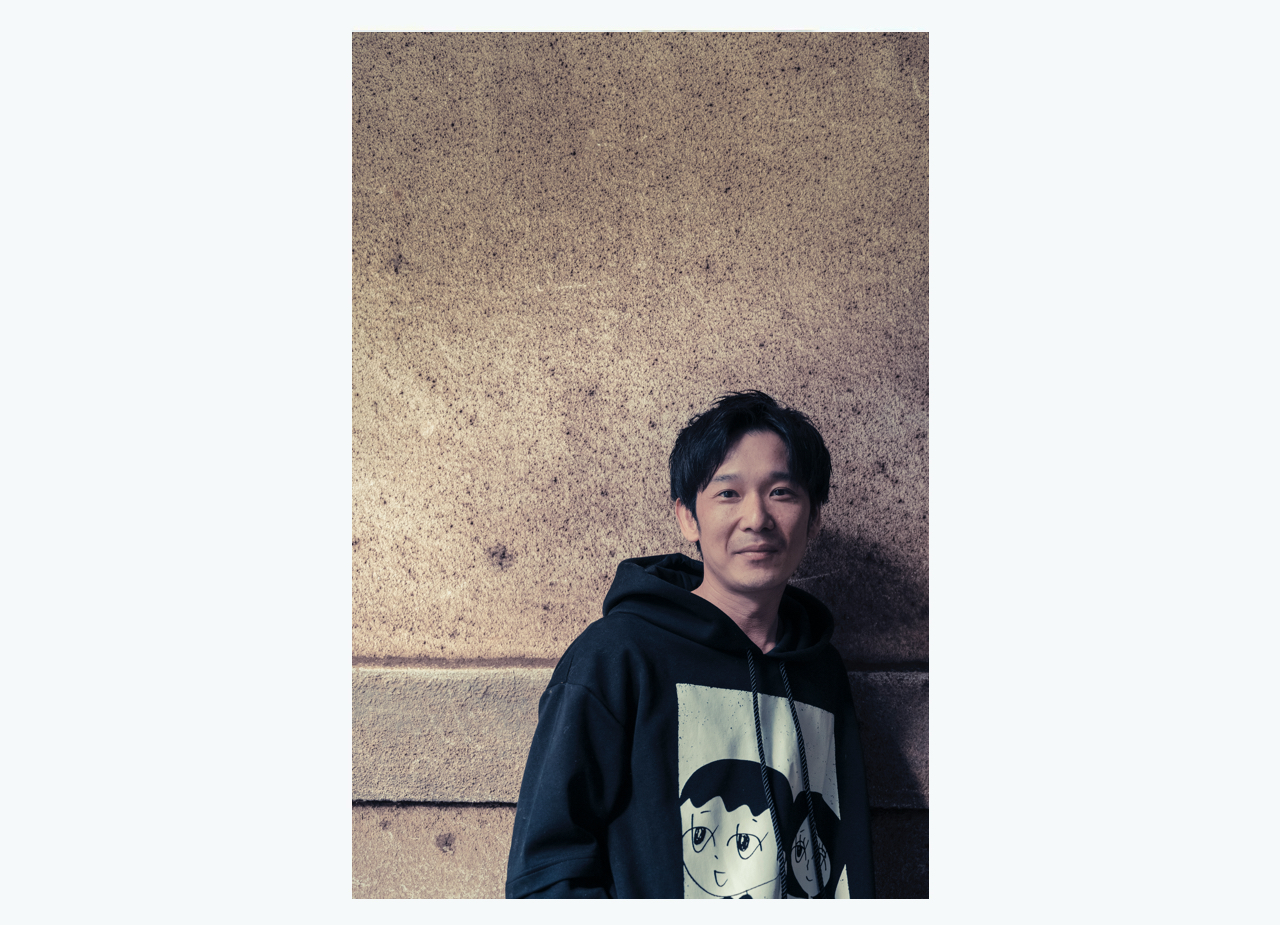As a film and video producer, Chikara Ito has worked on a number of films such as “Hotel Copain,” “The Old Capital,” “Shiori,” “We Are,” and “Day and Night, as well as “Zokki”, a film co-directed by Naoto Takenaka, Takayuki Yamada, and Takumi Saito, which is now on the screen.
The uniqueness of Chikara Ito lies not only in his works, but also in new ideas and initiatives that will possibly underpin future filmmaking.
His unprecedented unique attempts include “mirroRliar”, the online platform for actors, launched in cooperation with Takayuki Yamada and Shinnosuke Abe, the short omnibus film project “MIRROR LIAR FILMS” directed by 36 directors ranging from unknown creators to celebrated directors, and a regional revitalization project through film production, as seen in the example of “Zokki”. What does producer Chikara Ito want to do with the future of Japanese cinema?
Finding more educative values within film than in school
ーーIt’s my understanding that film and video producers tend not to be independent but to work at the request of various film companies. However, you started your own film production company “and pictures”. What motivated you to do it yourself?
Chikara Ito (Hereinafter Ito): Originally, when I was a child, I wanted to be a teacher. It has to do with my background as a child born between economically conflicting families. Looking at each family’s environment, including financial aspects, I realized the significance of the education for children from both kinds of domestic circumstances. As a teacher, I wanted to convey how important it is to take care of others, regardless of their financial situation, work or profession. My activities have been underpinned by such a realization I came to when I was in the third grade of elementary school.
ーーIn fact, you didn’t become a teacher, but why did you take a step in the film industry?
Ito: When I was watching the film “Basketball Diaries” with some bad friend at the age of 18, he said, “I don’t want to be a bad guy like this.” His words made me realize that “movies can convey what is important to people!”
ーーSo, was that how you decide to become a film producer?
Ito: At first I was studying acting, but it turned out that I wasn’t really good at being in front of cameras (laughs). So, when I was 22, I decided to start my own film company to make my own film.
ーーOn your own!? Filmmaking requires a large number of staffs and a large crew.
Ito: Yeah you’re right, but as I got to know the film industry, I became skeptical about what the industry and organization should be. Especially, I had a problem with a sense of distance between directors, actors, producers, and PRs. Despite the fact that they are working on one film toward a same goal of bringing it to a wide audience, they are too delicate and polite to say what they really want to say. Instead, I wanted to organize a system where the staff could fight together as a team.
© ️2020 “Zokki” Production Committee
Days in high-end club in Ginza and doubts about the film industry
ーーBut film production also need a vast amount of money, right?
Ito: Until then, I had only worked part-time, so I decided to work as a staff member of a high-end club in Ginza to save money. Although it took me three years, I was able to save the cost for producing the first film and for establishing a company.
ーーOh that’s incredible!! You really decided to do it by yourself. However, it should be difficult to change the system that has long been maintained in the film industry. What did you think you needed to rethink?
Ito: There are still so many talented but unsuccessful creators in Japan, due to both situations where they can’t shoot any unless they gain the favor of film production company and closed structure of the business. Of course, we definitely need funds to make a film, but now it seems that Japanese films are just scrambling for limited box-office sales.
I’m always thinking about why we can’t or aren’t trying to increase funding from that level. First of all, it seems that we are only focusing on the domestic market. For example, South Korean film industry has achieved an outstanding results by expanding into overseas markets. Of course, I am not saying that the success in markets overseas can solve everything. It’s not that simple. But I think there are still many different approaches in Japan to increasing the number of people who are interested in films and to have them visit theaters. So, first of all, I think it is necessary for all the stakeholders to learn about the film industry in Japan, understand each other, and engage in frank exchange of opinions in order to increase industry-wide revenues.
Setting up a team with Takayuki Yamada for fighting together
ーーWhen did you become able to do what you really wanted to do?
Ito: The work that triggered my current activities was “Day and Night” (planning / starring: Shinnosuke Abe / director: Michihito Fujii / producer: Takayuki Yamada / released in 2019). The film was charged with the will to overcome the distance between staff such as directors, actors, and producers and to change the way budgets and guarantees are.
We wanted to create a system in which money would continue to come in as reward for success while protecting our own rights. Instead of just paying production costs and remunerate staff and casts within a fixed budget, we distributed profits as rewards. By doing so, the more recognitions the work gets, the more financial reward and time we can secure for directors, actors, creators. “Day and Night” is the first work that has made it possible.
ーーTakayuki Yamada participated in it as a producer. How did he get involved?
Ito: I and Takayuki Yamada did everything together from fundraising to script development to budgeting for production. He is an important partner whom I have exchanged information, shared so much, and fought together with. While supporting the production, through a series of night-time discussions, we have talked about the importance of building up more and more works.
Your self-expression will make you and your surroundings happy
ーーI’m sure there are a lot of difficulties in your own production method.
Ito: Yes that’s true. But we would like to be steadily engaged in what we should do one by one. In the latest work “Zokki”, thanks to the understanding of those involved, we will be able to distribute a portion of the proceeds from film distribution to the director, actors and other creators.
ーーBy doing so, it seems that the participants will also regard the film as “their own matter”, which will probably generate a good synergy.
Ito: Yeah, I sincerely hope it will.
ーーIn relation to “one’s own matter”, “MIRRORLIAR FILMS”, which advocates “an era in which anyone can make a film,” was made under exactly the same theme, right?
Ito: We will have 36 short films contributed by actors, directors, and selected creators from the audition and combine 9 of them into one omnibus, which will end up with 4 omnibus. It will take a calendar year to screen 4 omnibus films respectively. In an open call, we received 420 application for 12 positions. It is safe to say that at least 420 directors and the people associated with them are or became interested in films, so I hope this opportunity will broaden the base for film production.
ーーLooking from applicants’ perspective, it can be a great opportunity for them to be able to make a “try with no second thought”.
Ito: Yes. In addition to that, there is an atmosphere in the world today where you will be immediately slandered and erased, if you send something against the big trend. Now is the time when it is difficult for us to speak our mind out. But I think we should place more value on self-expression and our own sensibility. Besides, I also believe that the more people expressing themselves through their works, the richer hearts of those who receive them will be. It also contains a message that self-expression will make people around you happy.
We still have so many unknown talents in Japan and buried originalities peculiar to Japanese culture. I want to create as many chances as possible.
ーーAre there any support available for applicants who have never made a film?
Ito: Yes. For example, with the cooperation of Sony, we are providing a set of cameras and lenses, and we are also supporting the creation of an environment for raising funds in partnership with the crowdfunding company campfire. In addition, a film festival is scheduled to be held in 2022, and a prize of 5 million yen will be awarded to the Grand Prix.
Of course, we will give appropriate support to nationwide theatrical release of 12 works selected from the open-call, and pay rewards according to the sales such as box office revenue, distribution, DVD and TV sales to those involved.
films.mirrorliar.com/
ーーThe lineup of directors and actors is surprisingly gorgeous, such as Masanobu Ando, Kazuaki Kiriya, Jun Shison, Ko Shibasaki, Michihito Fujii, Asami Mizukawa, Atsuhiro Yamashita, Elaiza Ikeda, Daigo Matsui, Ayaka Miyoshi, Yukiko Mishima, Ryo Hanada, and Tsuyoshi Muro. But how did you select these people?
Ito: I, Takayuki Yamada, and Shinnosuke Abe worked on recruiting them respectively. Some people are hesitate to direct a feature-length film, but many people were happy to take on a direction of a short film. They are struggling but still enjoying themselves.
Reginal revitalization through films ingrained into the local community
ーーDiscovering new talent through “mirro Rliar” and “MIRRORLIAR FILMS” will lead to the future of the film industry. As with that purpose, you are also focusing on regional revitalization starting from making movies.
Ito: It all started when I returned to my hometown of Toyohashi City, Aichi Prefecture. When I returned after a long time, all the candy stores and greengrocers I used to go to in my childhood were closed. I conducted a field research by myself to understand why it had happened. Then what I found out was that it was not the town but the people themselves that seemed to have lost their vitality. More specifically, it seemed to me that there was a lack of plan or event that could motivate or unite locals.
That reminded me of the school festival I had experienced when I was a student. At the festival, there was an atmosphere in which both motivated and unmotivated students had to participate (laughs). And it was, after all, fun. To me, making a film seemed to have the same elements as a school festival.
ーーYou made the film “Zokki” mainly in Gamagori City, Aichi Prefecture, with local governments and residents, right?
Ito: Film crews tend to leave the filming location after shooting, but I thought it was important to stay there even after filming together, rather than working together temporarily. For this reason, we have organized an executive committee of about 200 people for “Zokki”, consisting of the public and private sectors, in cooperation with local people. If the members of the executive committee remain in the area and the filmmaking know-how is well established, the next project can be started shortly after launch and it will be easier for other film companies to consult with them.
ーーSo in the end, there will be film production and advertising departments all over the country.
Ito: That’s right. If there are people with experience in film production, they can think of many regional revitalization projects by making use of their skills and knowledge. For example, they can relate films to a local event or sell merchandises developed by themselves. Since the motion-picture film will also remain there, it is possible for them to have a screening at any local event. And if neighboring areas catch the news about such a successful example, regional cooperation can be made from there and even the other prefectures can follow it. In this way, films will connect the cities, ending up with the revitalization of both the film industry and the region.
ーーI would like to see how the things were actually going.
Ito: After “Zokki”, we will release a documentary film called “Ura Zokki” (released nationwide from May). In this film, you will be able to see how the people involved in the film and the local people cooperated, and the process and results of the film production at the same time.
Hoping that Japanese film production will eventually become a “culture”
ーーWhat does it mean to cooperate with the local community again?
Ito: I believe film is the best form of comprehensive art and a valuable industry with which we can develop diversified business. I hope that the filmmaking and its works will take root in the region around shooting locations and enrich the hearts of those who have exposed to it as much as possible, making more people interested in the film and visit the cinema.
ーーIs there anything you can see when you shoot in a rural area?
Ito: Yes. I think Japan is a Tokyo-centralized country. There are many areas with no film theater or many wonderful and diverse works only shown in the limited part of Japan. It feels like there is a various form of information disparity. In addition, we have seen disappearances of vernacular practices due to the declining birthrate and the shortage of young craftsman who can take over traditional crafts. Witnessing such a situation, I feel afraid that Japan may be losing its identity. Therefore, we would like to use films to remind wonderful places that the local people may not notice, promote local production for local consumption, let people collaborate with each other, leading to local revitalization. I hope that such accumulations will become a small culture and become an important legacy for people living in the area.
ーーWhat do you want people to know and gain from your activities in the future?
Ito: I think that film and video culture enrich people’s hearts. So, first of all, if there is any opportunity, I would like people to participate in film production or make your own. You might think it is difficult to get information until getting involved or too challenging to make it yourself, but I would like you to take on the challenge without thinking twice.
ーー”Experience” is more important than anything else, right?
Ito: I think “experience” is very important. The interesting thing about regional revitalization through filmmaking is that most people read the script for the first time. Reading of the script will possibly make you feel like having discussions on why this character think like this, what kind of person it is, why this character like / hate that person, why this person kill / was killed and what right / wrong thing is. I hope that being involved in film production will give people one of opportunities to think, consider, and understand people.
ーーFilmmaking can be an opportunity for people’ growth and awareness, right?
Ito: Of course, film production is not only about fun, but also about difficulty. But I especially want people to experience teamwork and overcome difficulties for the team, regardless of their position, through making one thing together. It will surely be a treasurable moments that provide a powerful underpinning for their future life. I also want children to participate because there are many interesting people in the world of film entertainment. I want them to meet as many interesting people as possible from their earliest childhood.
Chikara Ito
Born in 1978, Toyohashi City, Aichi Prefecture. After working as an actor, he has been working as a film producer. He founded the film production company “and pictures” to create culture through film. He has worked on a variety of short and feature films including an omnibus projects “Short Trial Project” series, “Hotel Copain,” “The Old Capital,” “Shiori,” and “Day and Night” and has won numerous awards at domestic and international film festivals. He started “MIRRORLIAR FILMS”, a project that involves unknown creators and directors recruited in “mirroRliar”, a service that provides actors with learning and opportunities, which was launched by him, together with Takayuki Yamada and Shinnosuke Abe. He aims to promote regional revitalization projects through film production. Opening the online actors school “ACT Performing Arts School (A Gei)” in October 2020, he is now focusing on education as well.
https://andpictures.jp/
The movie: “Zokki”
Original story : Hiroyuki Ohashi “Zokki” “Zokki B” (published by Kanzen)
Directors : Naoto Takenaka, Takayuki Yamada, Takumi Saito
Screenplay : Yutaka Kuramochi
Music director : Chara
Cast : Riho Yoshioka, Fuku Suzuki, Shinnosuke Mitsushima, Yurina Yanagi, Sara Minami, Masanobu Ando, Pierre Taki, Yusaku Mori, Joe Kujo (Kotei), Mai Kiryu, Kumi Koda, Takehara Pistol, Yunho, Rena Matsui, Yutaro Watanabe, Koji Ishizaka (cameo appearance), Ryuhei Matsuda, Jun Kunimura and others
Production : Film “Zokki” Production Committee
Production : and pictures, Polygon Magic
Distributor : Aeon Entertainment
https://zokki.jp
Twitter:@zokki_movie
Instaglam:@zokki_movie
Facebook:https://www.facebook.com/zokki.movie
Photography Daisaku Urata
Translation Shinichiro Sato

